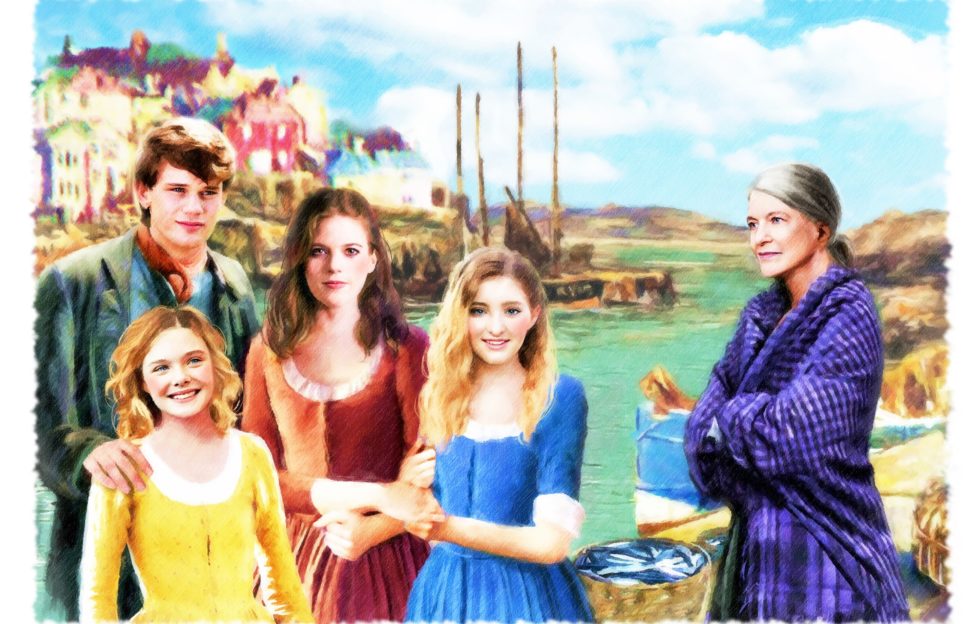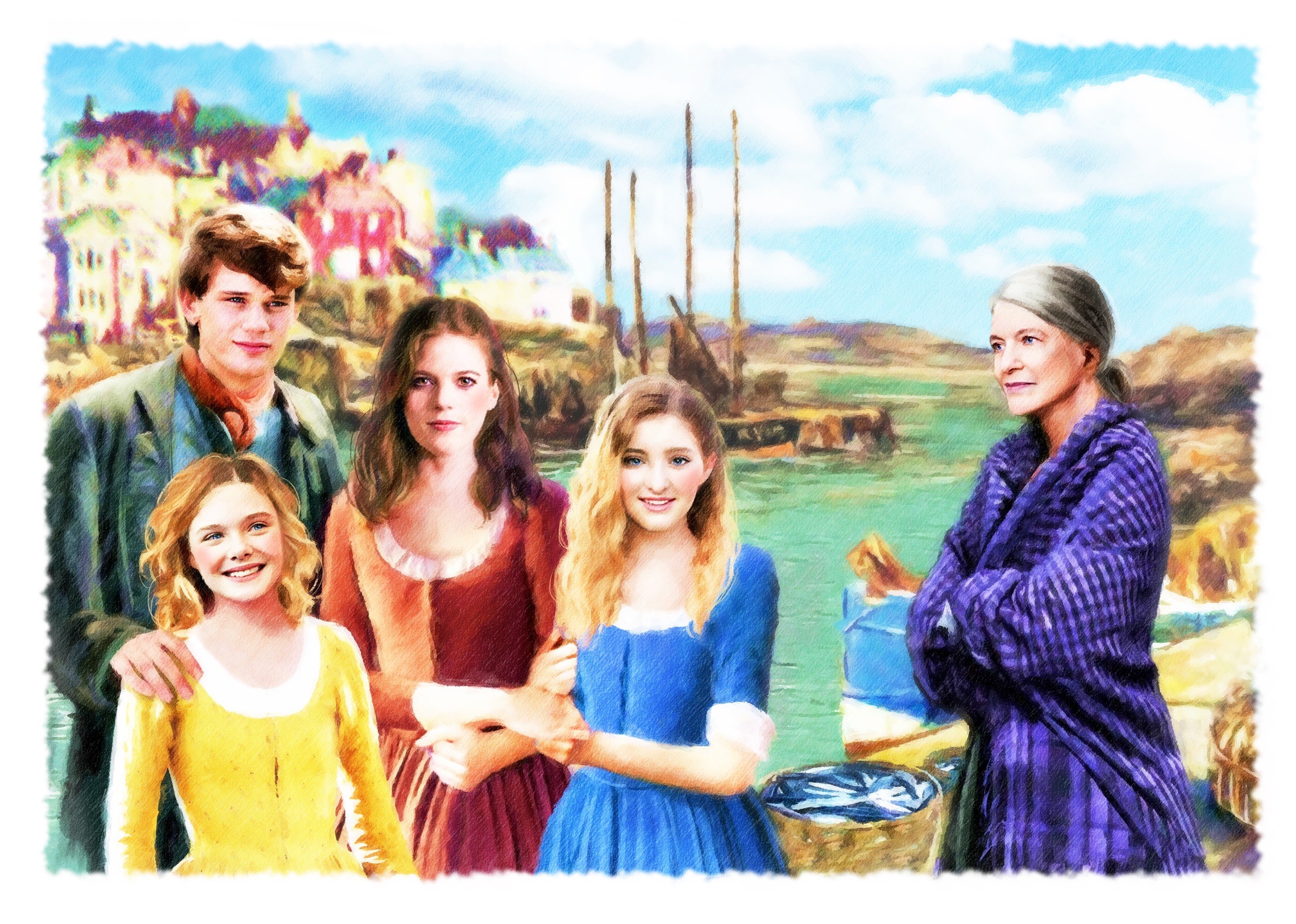Northern Lights – Episode 24

Northern Lights by Betty McInnes
« Previous Post- 21. Northern Lights – Episode 21
- 22. Northern Lights – Episode 22
- 23. Northern Lights – Episode 23
- 24. Northern Lights – Episode 24
- 25. Northern Lights – Episode 25
- 26. Northern Lights – Episode 26
- 27. Northern Lights – Episode 27
Samuel Cameron appeared. He was smiling and showed no signs of his sister’s agitation.
Lilias glanced round.
“The shop’s gey quiet today, Mr Cameron.”
“Many fisher folk stay indoors on Friday. The day has ill repute. Some will not trim fingernails or beards for fear of courting disaster. Skippers think twice afore setting sail on Fridays. They believe it brings bad luck.”
Lilias shrugged.
“My man and I were too busy earning a living to heed superstition. We kept a healthy respect for the sea, of course. Fishing’s a dangerous trade.”
“It is indeed,” the young man muttered absently.
He glanced up to find Lilias’s shrewd gaze fixed upon him speculatively.
“Is it true the Cargills plan to open a lodging house?” he demanded.
“Aye. The venture could lift that family out o’ poverty, if it succeeds.”
“But if Miss Maggie works in men’s lodgings folk will whisper scandal behind their hands,” he protested.
Lilias eyed him narrowly.
“Would you rather she went out in all weathers, scrubbing steps and washing windows?”
He flushed angrily.
“Of course not!”
She leaned forward.
“Then leave my granddaughter’s reputation in my hands, Mr Cameron.”
Samuel packaged the purchase, unhappy.
Of course he rejoiced at Maggie’s change of fortune, but the thought of male lodgers ogling her drove him wild.
Although Samuel had always admired Maggie Cargill, this new emotion was startlingly revealing.
His sister Beatrice, more perceptive from the start, had made no secret of her disapproval. Samuel could sympathise with his sister’s apprehension should he take a wife.
Beatrice was an embittered spinster caring for their invalid mother, both dependent upon Samuel. He had been resigned to remain a bachelor in the face of such responsibility.
Then, at the mature age of thirty, he fell in love with Maggie Cargill, a lassie twelve years his junior.
Samuel sighed. The unsuspecting young lass would be shocked if she knew, and he did not wish ruin on their friendship.
He was confident she liked him, and that was reward enough for now. Samuel was willing to wait patiently for as long as it took for Maggie Cargill to learn to love him.
He forced a smile for Maggie’s feisty granny and bade Lilias goodbye.
* * * *
By early summer of 1807 the Bell Rock work yard was well established by the harbour. It would be the beating heart of the effort to raise a lighthouse on the Inch Cape. The shoal still lay uncapped 11 miles out to sea, lapped by white foam at low water, hidden feet below waves at high tide, a constant menace to shipping.
The rock’s red sandstone gullies and outcrops, worn smooth as glass by the sea’s pounding, had been meticulously mapped by a team led by Robert Stevenson, chief engineer.
Already the site was found for the stone lighthouse and an accompanying temporary wooden beacon-house to house artificers.
The Floating Lightship was towed out of Leith in July and anchored in position a mile and a half from the Bell Rock. Her complex system of lights would not be ready to shine for some weeks to come.
All that remained was to transport workmen and materials across the water.
Alec Cargill spent most of the day in the work yard helping Jeremiah Cuthbert, his master. Several blacksmiths worked alongside one another in the yard sharpening stonecutting tools, checking winches, chains and lifting gear in readiness for heavy usage ahead, when work would begin in mid-August out on the Bell Rock.
By now the yard had assumed the proportions of a sizeable village with barrack rooms, food stores, engineers’ offices and apartments, workshop stores and buildings allocated to draughtsmen, designers and mould makers.
A round platform of masonry 44 feet in diameter dominated the centre of the yard. Stones cut to a pattern dictated by the lighthouse’s tapering circular structure would be laid on this vital component for checking and numbering before shipment out to artificers working on the rock.
An air of anticipation grew stronger in early August as men labouring in the yard were inspired to work harder and for longer hours.
Alec was no exception and worked with a will, although his work was hot, sweaty and gruelling.
He whistled under his breath as he worked, cheered by a belief that somehow, somewhere, his dear dead father must know and approve.





